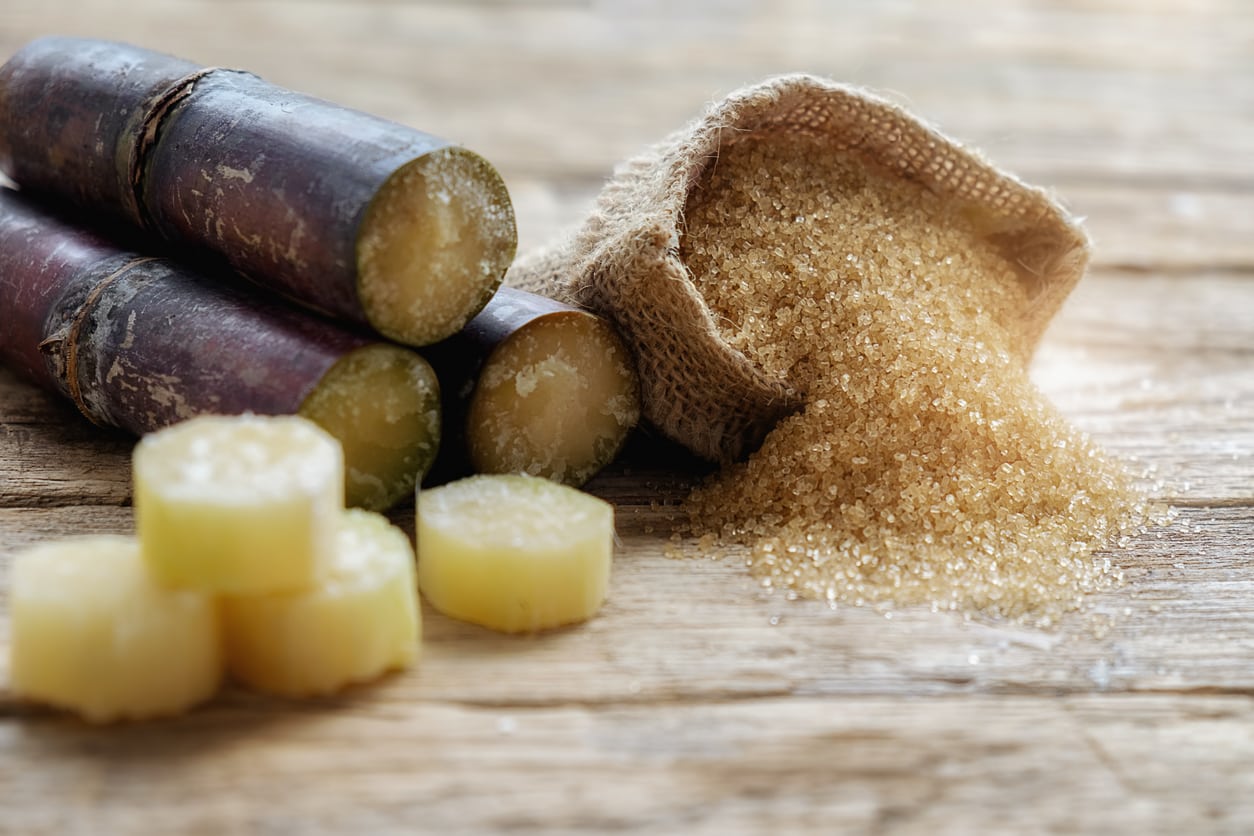The Healthier Alternatives to Sugar and Cane for Natural Sweetness
Wiki Article
Why Walking Cane Sugar Handling Chemicals Are Important for Modern Sugar Refining
The duty of cane sugar handling chemicals in modern sugar refining can not be overstated, as they are important to enhancing both the efficiency of removal and the overall quality of the last product. Representatives such as phosphoric acid and certain flocculants are employed to eliminate pollutants, resulting in sugar that not only satisfies consumer expectations however likewise sticks to industry standards.Duty of Handling Chemicals
The efficiency of walking cane sugar handling hinges significantly on the tactical application of handling chemicals. These chemicals play a crucial role in enhancing the performance and high quality of sugar removal and refining. From the initial stages of juice extraction to the last purification actions, handling chemicals assist in various crucial procedures.In the extraction phase, chemicals such as phosphoric acid and calcium hydroxide are utilized to optimize the clarification process, aiding to get rid of pollutants and suspended solids from the cane juice. This not only boosts the return however also ensures the quality of the last item. In addition, representatives like flocculants aid in the rapid settling of contaminations, consequently improving the overall procedure.
As the handling breakthroughs, chemicals are used in decolorization and condensation stages. Activated carbon and ion exchange materials offer to remove shade and smell, ensuring that the refined sugar fulfills customer top quality requirements. Eventually, the role of handling chemicals extends beyond operational effectiveness; they dramatically affect the sensory features of the last product, adding to market competitiveness. Hence, the careful selection and application of these chemicals are essential for accomplishing optimal end results in walking stick sugar processing.
Secret Sorts Of Chemicals
Walking cane sugar processing depends on a range of vital chemicals that help with each stage of manufacturing. These chemicals play vital duties in clearing up, lightening, and purifying the sugar removed from cane.One primary classification of chemicals consists of flocculants, such as polyacrylamide, which aid in the information procedure by promoting the aggregation and settling of contaminations. In addition, calcium hydroxide is frequently utilized to neutralize acidity and help in the elimination of non-sugar elements.
Lightening representatives, such as turned on carbon and sulfur dioxide, are used to decolorize the syrup, resulting in a clearer final item. These chemicals help eliminate color compounds that might impact the sugar's appearance and marketability.
In addition, phosphoric acid functions as a pH regulatory authority throughout the handling phases, making certain ideal conditions for the enzymatic activities included in sugar removal and filtration.
Various other important agents consist of edta (ethylenediaminetetraacetic acid), which chelates metal ions that could catalyze unfavorable reactions, and salt hydroxide, which helps in pH control throughout the refining procedure. Jointly, these chemicals enhance effectiveness and make sure a top quality walking cane sugar product.
Benefits for Sugar Top Quality
Frequently ignored, using specific processing chemicals considerably improves the overall high quality of cane sugar. These chemicals play a pivotal function in refining processes, guaranteeing that the end product meets rigid market requirements for purity and taste.
Furthermore, processing chemicals assist in attaining a constant granulation and structure, which are critical for consumer approval. By controlling the formation procedure, these chemicals make sure that the sugar crystals form uniformly, causing a more attractive product that dissolves well in various applications.
Moreover, making use of these chemicals can enhance the life span of walking stick sugar by lessening moisture absorption and microbial growth. Overall, the strategic application of processing chemicals is necessary for providing high-grade walking stick sugar that satisfies consumer assumptions and industry demands.
Ecological Effect Factors To Consider

Additionally, the energy-intensive nature of sugar refining, worsened by chemical use, commonly leads to increased carbon discharges. This adds to climate adjustment and increases concerns concerning the sustainability of current refining methods. Additionally, the sourcing of these chemicals might entail methods that endanger biodiversity, such as monoculture farming, which minimizes the strength of farming ecological communities.

To minimize these effects, sugar refiners are significantly discovering lasting alternatives and embracing ideal techniques that decrease chemical usage. Carrying out extensive ecological monitoring systems can aid guarantee that the refining procedure aligns with environmental criteria and advertises biodiversity. Eventually, a well balanced approach that focuses on both sugar quality and ecological stewardship is necessary for the long-term feasibility of the sugar market.
Future Fads in Refining
As the sugar industry faces the environmental challenges connected with traditional refining methods, ingenious approaches are arising to enhance both effectiveness and sustainability. One significant pattern is the fostering of green chemistry principles, which prioritize using non-toxic, biodegradable processing chemicals. This change not only minimizes ecological impact however also addresses customer demand for cleaner production approaches.Another appealing development is the implementation of sophisticated filtering innovations, such as membrane layer splitting up and adsorption procedures. These techniques improve published here the clarity and quality of the sugar while decreasing the quantity of wastewater produced during refining. Additionally, the combination of electronic innovations, consisting of IoT and AI, is transforming operational performance by allowing real-time surveillance and anticipating upkeep, therefore reducing source waste.
In addition, the usage of by-products from sugar refining, such as bagasse and molasses, is gaining traction. These materials can be exchanged biofuels or value-added products, adding to a round economic situation within the market. Collectively, these fads signal a change towards even more sustainable practices that not only enhance operational efficiency yet additionally align learn the facts here now with worldwide sustainability goals, ensuring the future practicality of sugar refining.
Final Thought
Cane sugar processing chemicals are important in contemporary sugar refining, dramatically boosting the effectiveness and quality of sugar extraction. The calculated usage of these chemicals not just enhances the pureness and flavor of the end product but also guarantees consistent condensation and structure. As the market progressively prioritizes sustainability, the fostering of environmentally-friendly handling representatives is most likely to form future trends in refining, eventually causing better products and prolonged rack life for consumers.
Ultimately, a balanced strategy that focuses on both sugar high quality and ecological stewardship is necessary for the long-lasting stability of the sugar market.
Cane sugar handling chemicals are crucial in modern-day sugar refining, dramatically improving the efficiency and high quality of sugar removal.
Report this wiki page